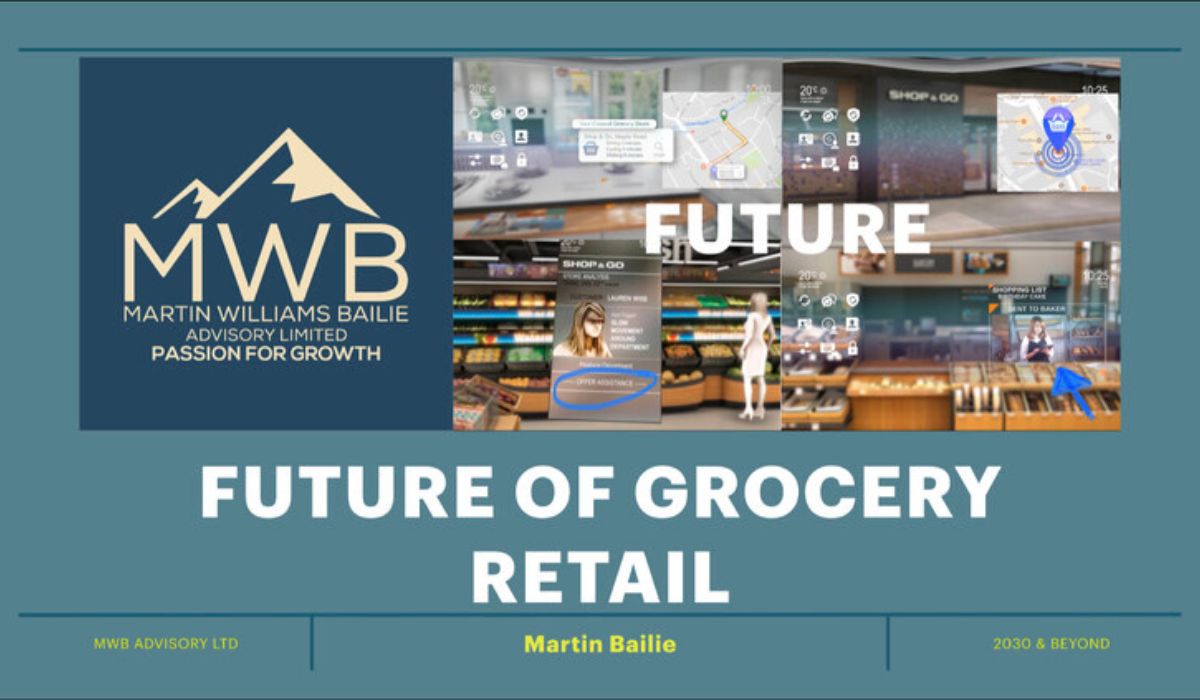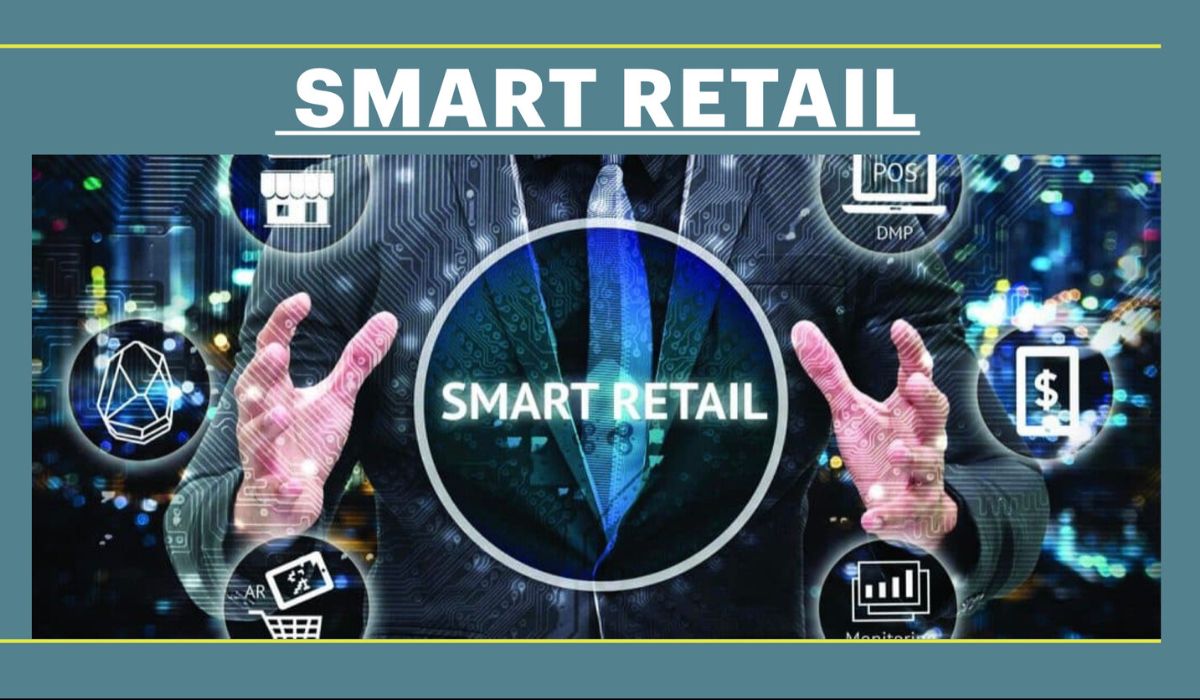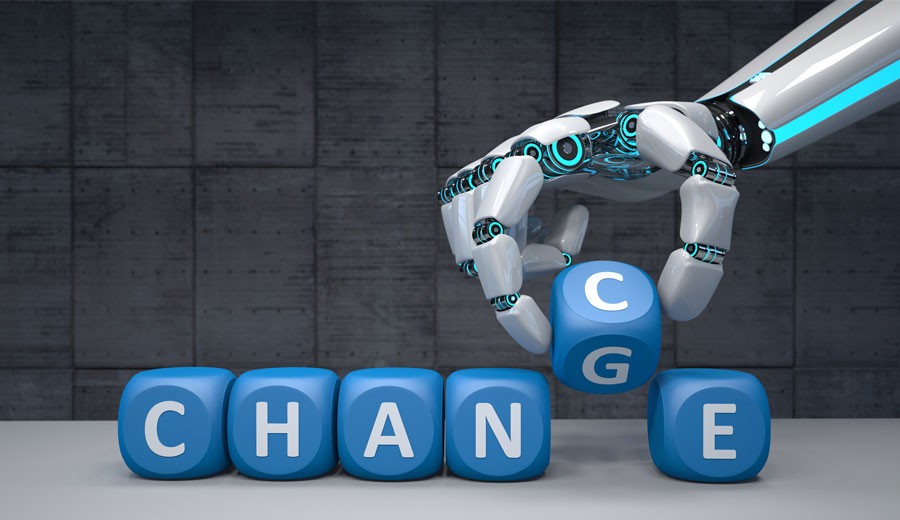
Consumers are demanding greater transparency and personalisation from their grocers so they can make informed choices that support their dietary needs, health goals, emotions and values. These rapidly shifting consumer demands, tech savvy globe, paired with emerging technologies, will lead to 1. SMART RETAIL with a massively improved 2. OMNIPRESENT JOURNEY, 3. IMMERSIVE RETAIL and a 4. 360 ECOSYSTEM ‘WAY OF RETAILING’. Yet the most important factor for 5. CUSTOMER EXPERIENCE, in the future, will not be technology but in fact PEOPLE!!
Let me take you through the future of of grocery 2030 & Beyond!

In 2030, smart retail will be a fully integrated and seamless shopping experience, with technology at every step of the customer journey. Customers will be able to enter a store and immediately have a personalised experience tailored to their look preferences and previous shopping behaviors.
Artificial intelligence and machine learning algorithms will analyse data on a customer’s past purchases, browsing behavior, and social media activity to provide personalised product recommendations and in-store navigation. Deep AI will eventually learn emotions of our customers!! This level of consumer data will be a ‘game-changer’ for all retailers and brands alike.
Augmented reality will also enable customers to try on clothing and see how furniture would look in their home without ever leaving the store.
In-store robots and automation will handle routine tasks like restocking shelves and processing transactions, allowing employees to focus on providing exceptional customer service & a compelling USP. Customers will be able to seamlessly move between in-store and online shopping, with options for same-day delivery or in-store pickup for online purchases. Phygital retail solutions ‘today for tomorrow’ was ever present even in this years EuroShop 2023, in Düsseldorf Germany, that i immersed myself successfully over the 4 days.
Smart payment systems will enable customers to pay with a wave of their hand or a facial recognition scan, eliminating the need for cash or credit cards. Blockchain technology will provide transparent and secure tracking of products from the point of origin to the point of sale, giving customers confidence that their purchases are ethically sourced and environmentally sustainable.
Overall, smart retail in 2030 will be a personalised, emotionally valued, hyper convenient, and sustainable shopping experience that seamlessly integrates technology into every aspect of the customers life-journey.

Another important element is Smart supply chain. A supply chain that is so advanced in technology, data analytics, and automation to improve efficiency, transparency, and flexibility. The goal of a smart supply chain is to create a more streamlined and efficient process from the point of production to the point of consumption, reducing waste and maximising profitability.
Smart supply chains typically involve the use of sensors and data analytics to monitor and optimise the movement of goods and information throughout the supply chain. This can include tracking inventory levels, monitoring transportation routes and conditions, and analysing demand data to anticipate customer needs.
One of the key benefits of a smart supply chain is the ability to quickly respond to changes in demand or supply chain disruptions. By using real-time data and analytics, businesses can make informed decisions to mitigate risks and maintain continuity in the supply chain.
Smart supply chain technologies can include:
- Internet of Things (IoT) sensors and devices to track and monitor inventory, transportation, and production processes
- Advanced analytics and artificial intelligence to optimise supply chain processes and make data-driven decisions
- Blockchain technology to ensure transparency and security in the supply chain
- Robotic process automation (RPA) and autonomous vehicles to streamline logistics and reduce manual labor
- Cloud-based platforms for collaboration and real-time communication among suppliers, partners, and customers.
An advanced, well invested in smart supply chain can help businesses reduce costs, improve customer satisfaction, and gain a competitive advantage in today’s fast-paced and complex business environment.

